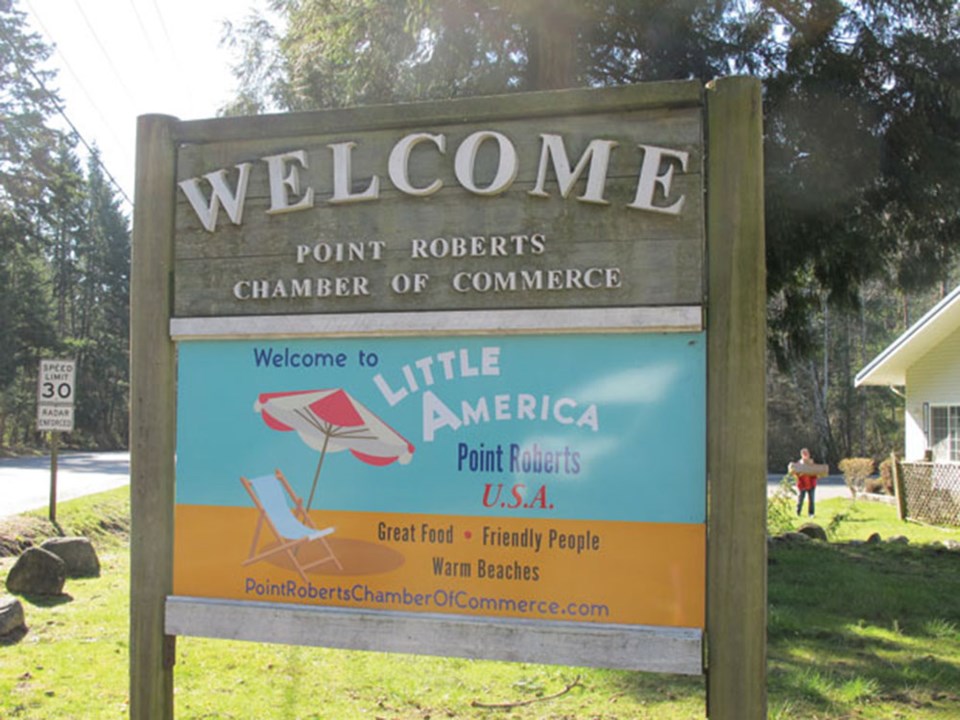If the closure to non-essential traffic of the world’s longest undefended border bothered you, the Border Policy Research Institute wants to hear from you.
Based at Western Washington University in Bellingham, the institute has launched a survey asking people to share their stories, experiences and anecdotes from when the Canadian-U.S. border closed in 2020/21, because of the COVID-19 pandemic.
Some stories have been told, but others have not, the institute says on its website. Some of the impacts caused by the closure were family separation, disruption of care, lack of access to essential goods, and job and revenue losses.
To hear the untold stories, the institute launched a short survey Nov. 27, open to those with both U.S. zip codes and Canadian postal codes.
Point Roberts Chamber of Commerce president Brian Calder is urging members to take the survey and has added it to the chamber’s website.
“With everyone contributing, it will show the extent to which our citizens suffered during that time,” he said. “I believe that the border lockdown caused Point Roberts more significant and long-term damage than the Covid virus did.”
Canada closed its borders to all but essential crossings on March 21, 2020. That hurt business and prevented many Canadian owners of Point Roberts properties from visiting.
Calder pointed out there was no support from either Canadian or American governments for Point Roberts.
He said that residents could only catch a boat once a week to Bellingham when the border was closed.
Meanwhile, the ArriveCan app that people were supposed to have on their phones to confirm vaccinations “caused more difficulties and suffering for citizens of both countries than it ever solved or helped,” he said.
Cellphone signals from Point Roberts were picked up by Canadian cellphone networks, leading to repeated robo calls from ArriveCan telling Point Roberts residents they had to isolate for 14 days.
Meanwhile, border and customs officials were making medical decisions determining who couldn’t and could cross the border.
Calder said the shut down also led to a long-term drop in border crossings, noting numbers are still down 35 per cent from pre-pandemic times and people are now only crossing to buy gasoline and use postal services.
In the event of another shut down, he suggests that Point Roberts residents should be allowed to pass through Canada at will to get to the U.S. mainland.
As well, Canadian owners of Point Roberts properties should be allowed to get to their homes without special testing, while U.S. mainland trades and service personnel also should be allowed access to Point Roberts.
Similarly, Point Roberts residents should be allowed to go to medical and veterinary appointments in Canada, while school kids from Point Roberts also should continue attending school in Blaine, or Canada.
Calder said that both federal governments must recognize that Point Roberts is “inextricably” tied to B.C., “and that will not change.”
Researcher Andréanne Bissonnette is leading the study and said the project focuses on the experiences of people along the border.
"Our project is transnational and cross-country: we want to collect, archive and map stories from all along the border, from residents of both countries," she said by email.
The survey is part of a larger project on the impact of COVID-19-related travel measures that were implemented.
She pointed out that the two countries are not doing any studies that will try to find any "lessons learned" from travel measures that were put in place during the pandemic.
"Our goal with these research projects is to carry those stories forward in the hopes of shaping better policies in the future, as there will be events that will tempt both countries to react with restrictive border policies, likely with little regards to the impacts to borderland communities," Bissonette said.
The study will be complete by next spring.



